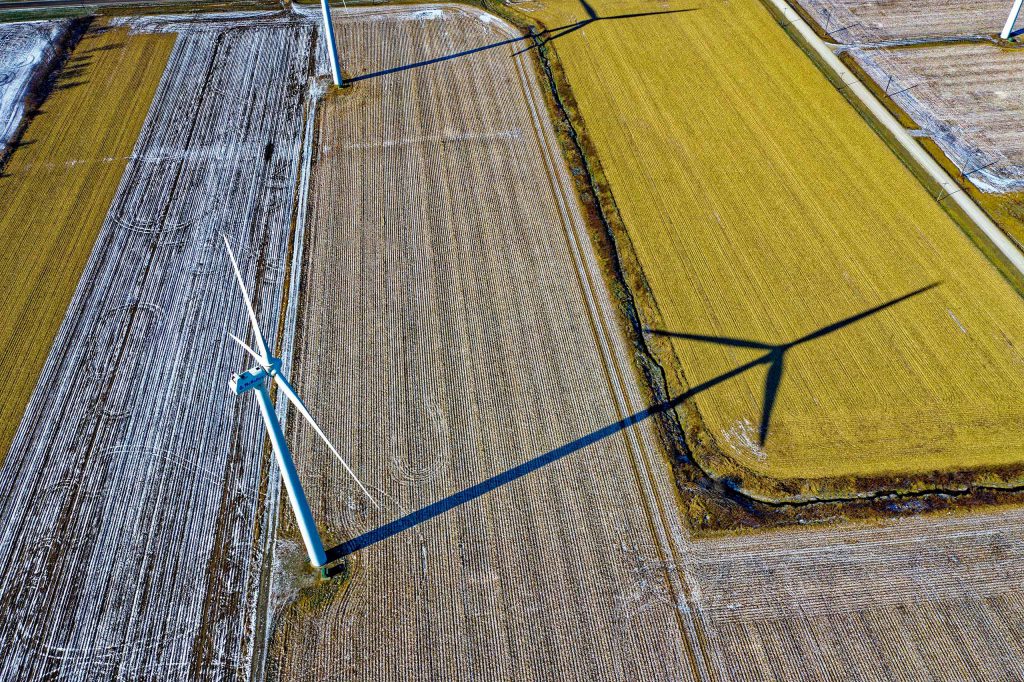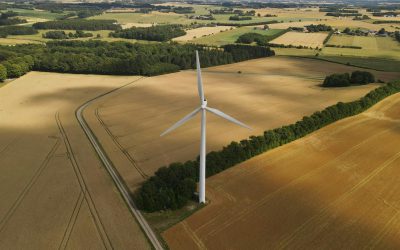Climate changes in West Balkans
The Western Balkans faces a common set of environmental challenges, as land use is changing. People move to cities and coastal regions resulting in the loss of coastal habitats and increasing urban sprawl. Pollution, especially air pollution, in urban and industrial areas, in addition to the discharge of wastewater, is taking a toll on human health and the environment. Municipal authorities in towns and cities are struggling to manage the situation. [1]
At the same time, the region has unique habitats, home to remarkable biodiversity, which need to be protected and conserved. To improve the situation, sustainable and reliable ways of managing water supply, wastewater and waste disposal are crucial and have a strong impact on environmental protection, citizens’ health, and tourism in the region. Given the EU perspective of the region, EU targets, including reducing greenhouse gas emissions by at least 55 % by 2030, must frame the systemic modernisation of the region and its future growth. [1]
The International Panel on Climate Change (IPCC) also identified the Western Balkans as one of the most vulnerable areas in Europe. The region will face rises in temperature larger than the European average, and changes in precipitation patterns, leading to increased flood risk, extended periods of drought, soil erosion and forest fires. Climate change will most probably increase negative impacts, resulting in significant habitat, human and economic losses. The floods in 2014 demonstrated that the region is not prepared nor adequately equipped to deal with the increasing dangers posed by climate-related impacts. Although improvements in flood prevention and protection systems have been made since 2014, more recent flood events in 2019 and 2020 showed that more needs to be done to adequately address floods and related disasters. [2]
The Climate Challenge for The West Balkans:
The dominance of rain-fed agriculture in the Western Balkans makes the agriculture sector especially vulnerable to changing rainfall patterns and increasing temperatures. The climate extremes of a 4°C warmer world in the Western Balkans would pose major risks not only to agriculture but also to energy and population security [3]. They include:
- The Western Balkans emerges as one of the planet’s Warming HotSpots, with more frequent heat waves, escalating to as much as 80% of summer months in a 4°C warmer world.
- The mean average summer temperature in the Western Balkans could climb to 7.5°C above pre-industrial times. As the climate warms the area’s Small Glaciers will be gone within decades.
- Rainfall is projected to decline 20–30% in the Western Balkans at 4°C warming.
- The increasing occurrence (by 20%) of Drought Days will be a major threat to agriculture.
- Water Availability in summer is expected to decrease throughout the century. Annual river discharge could be reduced by more than 45% by 2100 in a 4°C world.
- Winter and Spring Flood Risk is expected to increase, particularly along the Danube, Sava and Tisza rivers.
- Crop Yields in FYR Macedonia alone could drop by 50% by 2050 as the temperature climbs.
- Hydropower which plays an important role in the region’s electricity supply, will be at risk. In Albania for example the annual average output from large hydropower plants could be reduced by 15% and 20% for smaller plants.
- Health Risks will grow as the climate warms with the growing threat of dengue fever. Heat-related mortality would increase by 20% to 1,000 per million people
The international community and the EU have set the stage for action for the countries of the Western Balkans region. The Global 2030 Development Agenda, the Paris Climate Agreement with its NDCs, along with the Sendai Disaster Risk Reduction Framework and the ongoing EU accession process, are tremendous opportunities for Serbia as well as other countries of the region. It can help them to create innovative and resilient sector-specific policies and actions that will provide stable and sustainable societies capable of adapting to global societal and climate challenges. Moreover, by adhering to the SDGs and EU standards, it is becoming clear that economic development and prosperity can only be achieved if they go hand in hand with the protection of the environment from pollution and coping with changing climate conditions. Only such an integrated approach can prevent social insecurities arising out of food and water shortages, migrations and displacements due to extreme weather events, disease outbreaks due to global temperature increase etc. Eventually, our economies can only be sustainable if they aim to become carbon neutral. [4]
Secure and resilient societies are those that timely invest in disaster risk reduction and preparedness. By bringing national disaster prevention and recovery policies to the level of local self-governments and creating enabling policy and regulatory frameworks for local actions, much of the losses and damages can be avoided or at least alleviated. This is why effective coordination mechanisms and stakeholder involvement in the management of natural and man-made disasters are of crucial importance alongside ongoing climate emergencies. [4]
The EU responding:
As neighbours and aspiring EU members, addressing climate challenges in the Western Balkans is a priority for the EU [5]. The EU is behind numerous initiatives in the region that aim to mitigate and adapt to climate change. This includes, for example, funding for large-scale sustainable energy and transport projects channelled through the Western Balkans Investment Framework (WBIF) – an EU-led donor investment platform that pools funds from various sources, including the EU budget. The rehabilitation of the Tirana – Durrës railway line in Albania, a modernised tram fleet in Sarajevo, upgraded district heating systems in Pristina, the Bogdanic wind park in North Macedonia, the Trans-Balkan Electricity Corridor crisscrossing the region…are just some of the many projects that have made a positive difference to people’s lives, businesses and the environment across the region. The prospect of EU membership also provides an incentive for Western Balkan partners to bring legislation and practices into line with EU norms. The EU is very active in supporting the regulatory and policy reforms needed in the region.
Climate change and its impacts are felt across boundaries affecting water management and supply decisions – whether related to droughts, floods or other challenges. Cooperation and action across sectors will be key to overcome these challenges and to make our societies more resilient. Nature plays a major role in achieving sustainable development goals and reducing disaster risks. [2]
[1] https://www.wbif.eu/sectors/environment
[4] https://www.belgradeforum.org/climate-change-as-a-human-security-issue-in-the-western-balkans/
[5] https://webalkans.eu/en/themes/environment/climate-action/



